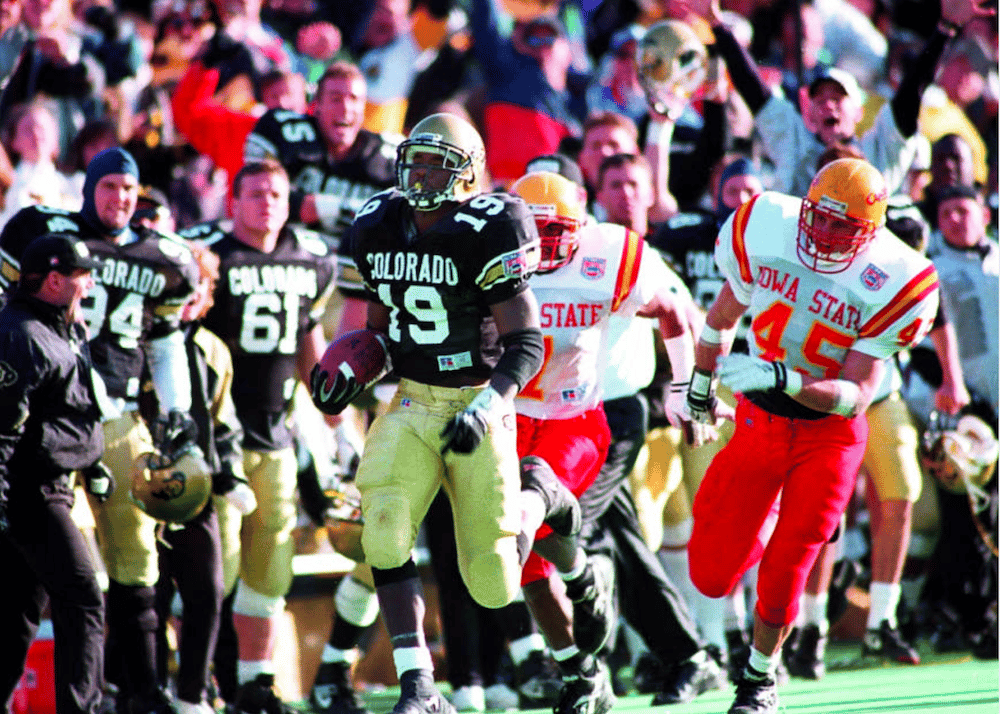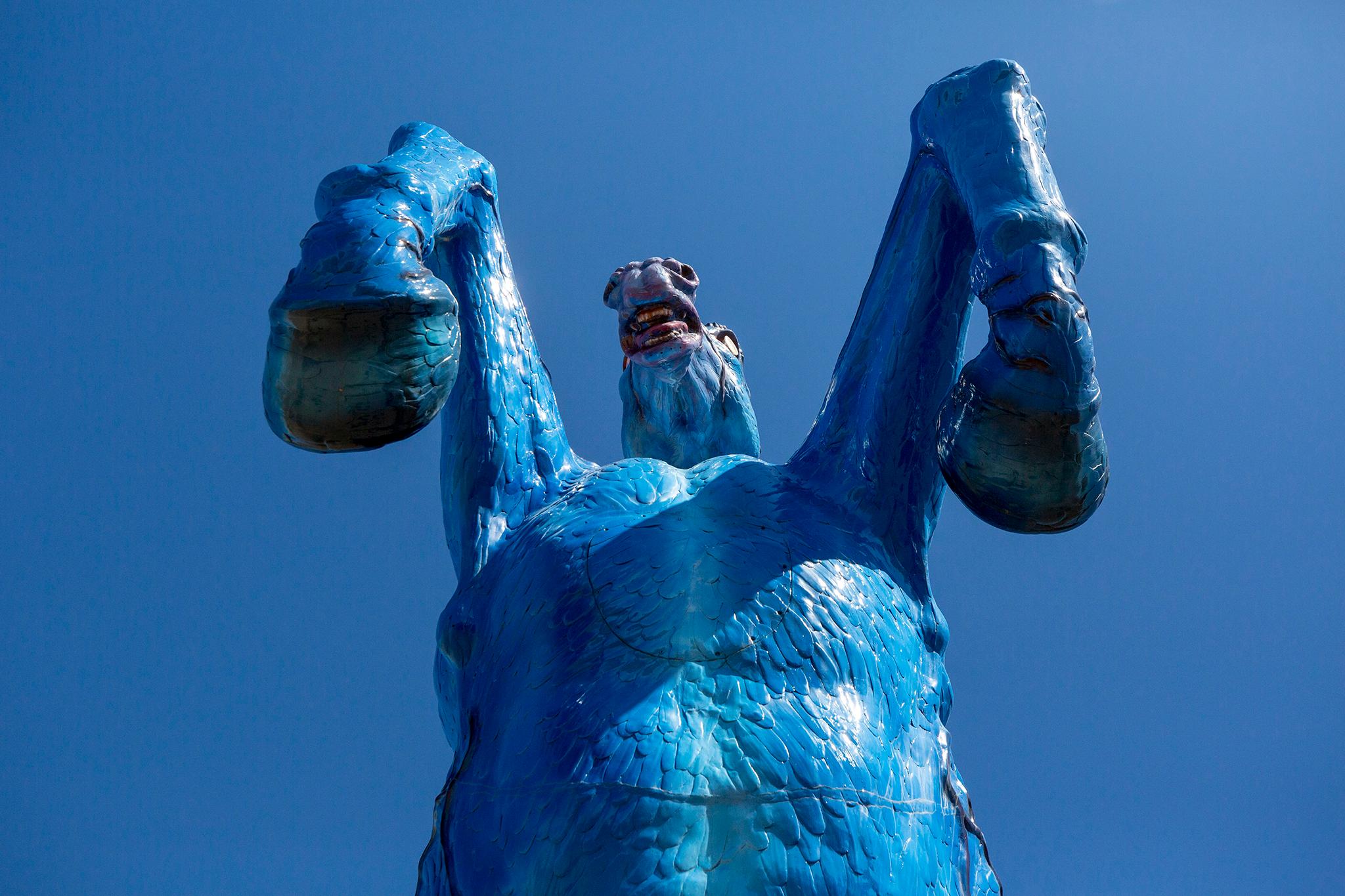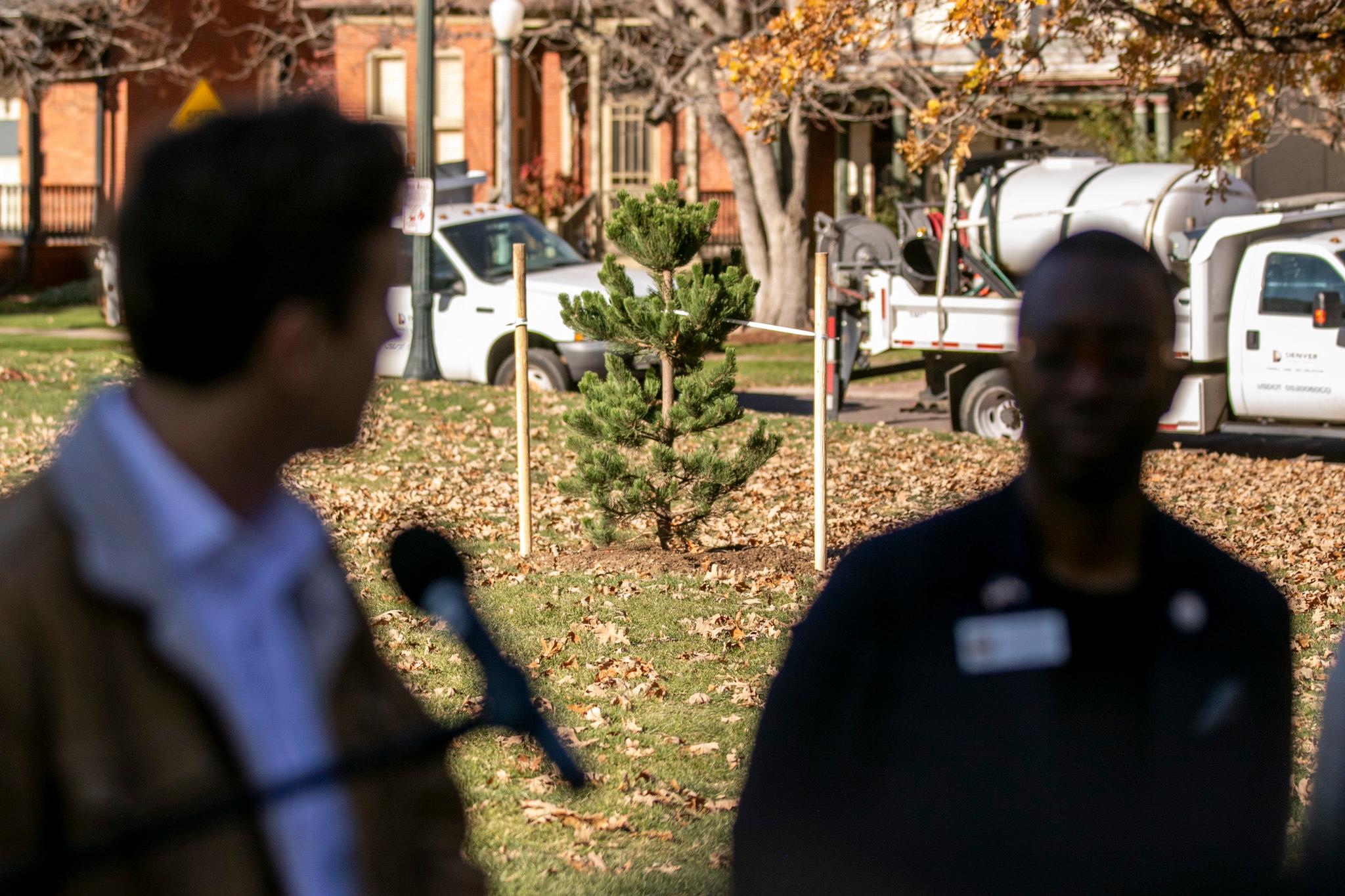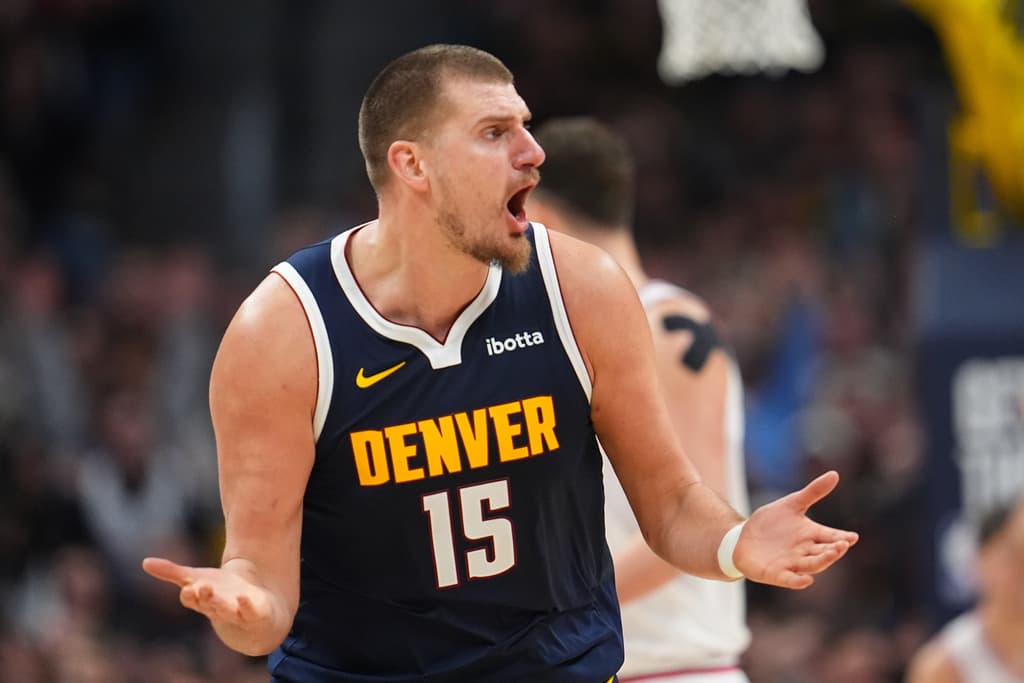
Tony Berti didn’t expect to hear his name called on national television the night of Dec. 13, 1994. That evening, Berti and his Colorado football teammates were packed into the upstairs area of the Dal Ward Athletic Center. The Buffaloes’ coaching staff was there. So were school administrators. Even a few students had sneaked in.
They’d gathered that night to watch the Heisman Trophy ceremony on ESPN. Colorado running back Rashaan Salaam was up for the award along with Ki-Jana Carter, Steve McNair and Kerry Collins. The Buffaloes felt fairly confident about Salaam’s chances. Weeks earlier, he’d become the fourth running back ever to eclipse the 2,000-yard rushing mark. Salaam racked up 2,055 yards and 24 touchdowns for the 11-1 Buffaloes, who finished No. 3 that season.
When Salaam’s name was finally called, the Dal Ward Center erupted. Then Salaam stepped to the podium. In his speech, Salaam thanked Berti, who played left tackle. He thanked left guard Heath Irwin. He thanked center Bryan Stoltenberg. He thanked right guard Chris Naeole. And he thanked right tackle Derek West.
By the time he was done, Salaam had thanked the Buffaloes’ entire starting offensive line individually.
“He was the epitome of a teammate,” Berti said. “He never wanted the spotlight on him. Even in his Heisman speech, he thanked the entire offensive line by name. It wasn’t about him winning the Heisman. He always said we won this. It was a team effort. That’s how he was.”
Salaam died this week at the age of 42. His body was found in the parking lot of a Boulder public park. He is believed to have died by suicide.
When the members of that 1994 Buffaloes’ team heard about Salaam’s death Wednesday morning, they called each other and shared stories about Salaam, laughing and crying as they remembered the man who had the most talent out of anyone on that spectacular team but never acted like that was the case.
“Rashaan just had that personality,” West said. “He lit up a room. He had a million-dollar smile.”
Former head coach Bill McCartney recruited Salaam to CU in 1992 as a part of the school’s famed “Nine Deuce” class. Salaam played his high school football on an eight-man team in San Diego. He rushed for 158 yards and a touchdown as a freshman, then 844 yards and eight touchdowns as a sophomore.
Salaam broke out his junior year.
West can recall realizing with three or four games left in the 1994 season that the 2,000-yard rushing mark was a real possibility for Salaam. He and the rest of the offensive line brought it up to him.
“Rashaan was like, ‘Eh, let’s just worry about winning games, guys,’” West recalls. “‘Who cares about all that other stuff?’ It got to a point where we as an offensive line were like, ‘We care. We want it.’ It got to a point where the offensive line wanted the yards and the Heisman Trophy more than Rashaan wanted it. We wanted it for him. He deserved it.”
Salaam reached the 2,000-yard benchmark in the Buffaloes’ final regular season game against Iowa State. In the fourth quarter, he received a handoff from quarterback Kordell Stewart, cut right and found daylight along the sideline. He ran 67 yards and in for the score. Salaam’s teammates mobbed him in the end zone.
Salaam announced his decision to turn pro after the season. The Chicago Bears took him 21st overall in the 1995 NFL Draft. He rushed for 1,074 yards and 10 touchdowns as a rookie. His NFL career, though, lasted only 33 games. He fumbled the ball a lot, and his marijuana use began to interfere with his career. He played his last NFL game with the Cleveland Browns in 1999.
“I was very young, very immature, and I think that caught up to me when I got to the league,” Salaam told the Denver Post in 2014. “In the pros, you have to be professional. I was 20 years old, going on 21, so I wasn’t ready mentally, physically or spiritually going into the NFL.”
Salaam’s abrupt NFL career didn’t do anything to diminish his greatness in the eyes of his CU teammates. He’s still one of only four men to rush for 2,000 yards in 11 games or less. He led the country in all-purpose yards that 1994 season, as well as touchdowns with 24.
More than that, the men who spent that season blocking for him say, he was a good teammate and a good human being.
“He’s a very charismatic guy, and a hard worker,” Berti said. “He’d come to practice every day and work hard. He didn’t take time off. He wasn’t a prima donna. He was big. He was strong. He was athletic. He was that guy. … He was somebody you wanted to be around.”
The Buffaloes' offensive line couldn't be with Salaam in New York the night of the Heisman ceremony. They did interviews with a couple media outlets back in Boulder when the ceremony finally ended.
As the night was wrapping up, they found each other and stepped outside to light up victory cigars. They talked about the season that was. Salaam — they — had really done it.
Subscribe to Denverite's weekly sports newsletter here.












